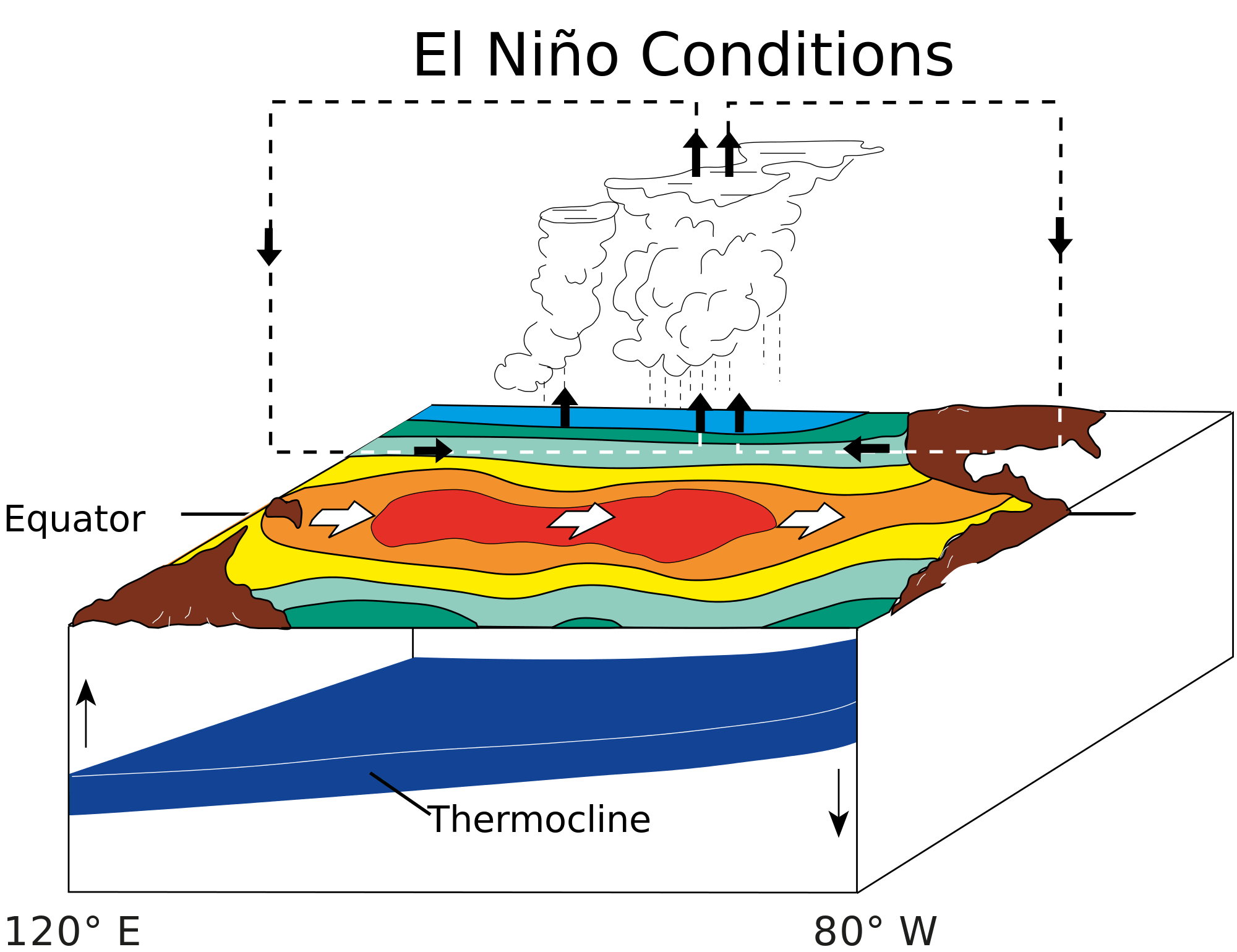COLLEGE PARK, Maryland, U.S. – ENSO-neutral conditions continued during March, with near-average sea surface temperatures (SSTs) across the central equatorial Pacific and above-average SSTs in the eastern Pacific, according to U.S. National Oceanic and Atmosferic Administration.
The latest weekly Niño index values were near zero in the Niño-4 and Niño-3.4 regions, and +0.8 and +0.9°C farther east in the Niño-3 and Niño-1+2 regions, respectively.
The upper-ocean heat content anomaly, averaged across the central and eastern Pacific, decreased to near zero during March, a reflection of above-average temperatures at depth in the east offset by below-average temperatures in the central Pacific.
Atmospheric convection remained suppressed over the central tropical Pacific and enhanced over the Maritime Continent. The low-level easterly winds were enhanced over the central and western tropical Pacific, and weaker than average over the eastern Pacific.
Also, upper-level westerly winds were anomalously easterly over the western and far eastern Pacific, while the Southern Oscillation Index was near average. Overall, the ocean and atmosphere system is consistent with ENSO-neutral conditions.
Most models predict the continuation of ENSO-neutral (3-month average Niño-3.4 index between -0.5°C and 0.5°C) through the late Northern Hemisphere spring (April-June).
However, at least one-half of the dynamical model forecasts, including the NCEP CFSv2, anticipate an onset of El Niño as soon as the April-June season.
Because of typically lower skill in forecasts made at this time of the year, and the lingering La Niña-like tropical convection and wind patterns over the western half of the Pacific basin, the forecaster consensus favors ENSO-neutral during April-June with a 60-65% chance.
Thereafter, there are increasing odds for El Niño toward the second half of 2017 (~50% chance from approximately August-December).
In summary, ENSO-neutral conditions are favored to continue through at least the late Northern Hemisphere spring 2017, with increasing chances for El Niño development by late summer and fall.


















